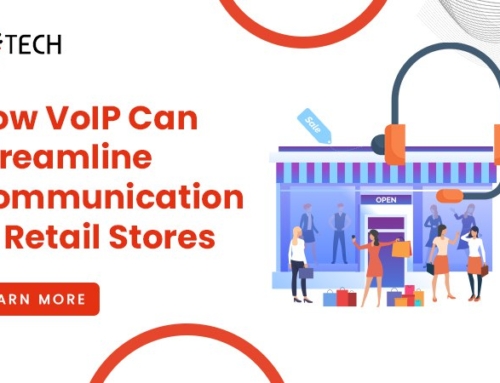DID(Direct inward dialing) is a service that telephone companies provide to
their clients for use with their PBX (private branch exchange) systems.
Consider trying to contact someone at a company but having to go through
an automated phone menu or a real receptionist each time.
You feel irritated after going through this process several times and wonder,
“Why can’t I just call this individual directly?” It’s most likely because the
company’s Direct Inward Dialing service hasn’t been configured.
Because of their geographical location, businesses are no longer bound by
a certain telephone area code. With the advent of internet telephony, you
can receive calls from anywhere in the world as if you were physically
present in the area indicated by your phone number.
Businesses can provide the image of a high-value location through their
telephone number while operating out of offices in a much cheaper area
using VoIP services, which channel calls through the internet at little to no
expense.
The rerouting of call destinations provides a wealth of possibilities. DID
numbers help to make this happen.
What is DID?
A telephone service provider connects a block of phone numbers to your
company’s Private Branch Exchange (PBX). It allows organizations to create
virtual phone numbers that skip the main reception lines and connect directly
to a desk extension or group of extensions. Local, premium-rate, or toll-free
numbers can all be utilized with DID.
For example, a corporation would rent from the phone provider 100 phone
numbers that could be dialed through eight real telephone lines (these are
called “trunk lines”). Additional inbound calls would receive a busy signal until
one of the calls was completed or a voice mail message could be left. A call
for a specific phone number is automatically routed to the relevant
workstation inside the firm by the PBX. There is no involvement of a PBX
switchboard operator.
A DID system can be used for faxing, voicemail, and live voice
communications. DID eliminates the need for a switchboard operator,
speeds up call processing, and gives callers the impression that they are
speaking with a person rather than a firm.
A local phone company (or local exchange carrier) provides a block of
telephone numbers for dialing into a business’s private branch exchange
(PBX) system. DID allows a corporation to provide individual phone numbers
to each of its clients without requiring a physical line into the PBX for each
conceivable connection.
What do you mean by VoIP?
The term VoIP refers to Voice over Internet Protocol. VoIP technology turns
voice into a digital signal, which is subsequently transmitted via IP networks
like the Internet.
What is the DID number is VoIP?
With the help of SIP trunking, VoIP is the most current and flexible approach
to using virtual direct-dial numbers. The trunk line connections are made
accessible when needed via SIP. These are not real lines, but virtual
broadband links that are only used when needed.
Internally, these virtual links are configured, and a software application links
the numbers to your extensions. You can do it yourself or have it done for
you by your VoIP provider.
VoIP DID is extremely scalable. For example, if you decide to launch a sales
campaign next month that necessitates the addition of 20 new trunk lines,
you may simply accomplish this. There’s no need to call your phone carrier,
wait for a block of numbers to be assigned, and then have a technician come
out to physically connect the trunk lines to your corporate PBX.
You could have had to wait weeks to get this set up in the past, and the
expense would have been significant. You can now customize it yourself.
The features of VoIP systems are numerous, and learning them takes time.
Most VoIP companies, thankfully, give competent onboarding and
assistance. This goes beyond the capabilities of ordinary service providers.
Benefits of DID(Direct inward dialing)
● Saving money
You can save money on trunk lines by using DID. You can even forward
DIDs to multiple continents using a VoIP system to save money on longdistance calls.
● Savings in time
Time is saved by routing calls directly to the person instead of through a
receptionist or a phone menu. When a customer’s representative has a
single phone number, follow-up becomes easier.
● Customer service improvement
Customers can get in touch with workers whenever they need to. From the
customer’s point of view, this can be an amazing experience.
● Collaboration within the team
Employees can communicate with colleagues via a dedicated extension,
even if they are in different buildings, cities, or countries.
● Existing machinery
Direct-dial ins happen in the phone network with VoIP, so you won’t have to
buy any new phones or hardware.
● Call forwarding software
Without the consumer knowledge, you can have your direct-dial line
automatically transfer incoming calls to your mobile phone or other
temporary numbers.
● Flexibility
You have more control over where and when calls are received with DID. A
mobile workforce necessitates a versatile solution. When you combine the
capabilities of VoIP, DID, and SIP with mobile phones, email, and SMS, you
have a more powerful telecommunications system for your company.
● Set the timer
Calls can be forwarded to different numbers at different times. This is
especially useful for worldwide teams who need after-hours support for
multiple time zones.
Why VoIPTech solutions are best for DID?
With fully protected networks and many layers of verification, VoIPTech
solutions alleviate any security concerns you may have. Our team ensures
that communication is secure throughout the transmission process. Allow
VoIPTech solutions to demonstrate unparalleled customer service. Our crew
is available around the clock, so you may get technical assistance and
consultation services at any time. Receive a single, all-inclusive bill with no
surprises. We provide a DID for your businesses and call centers.







